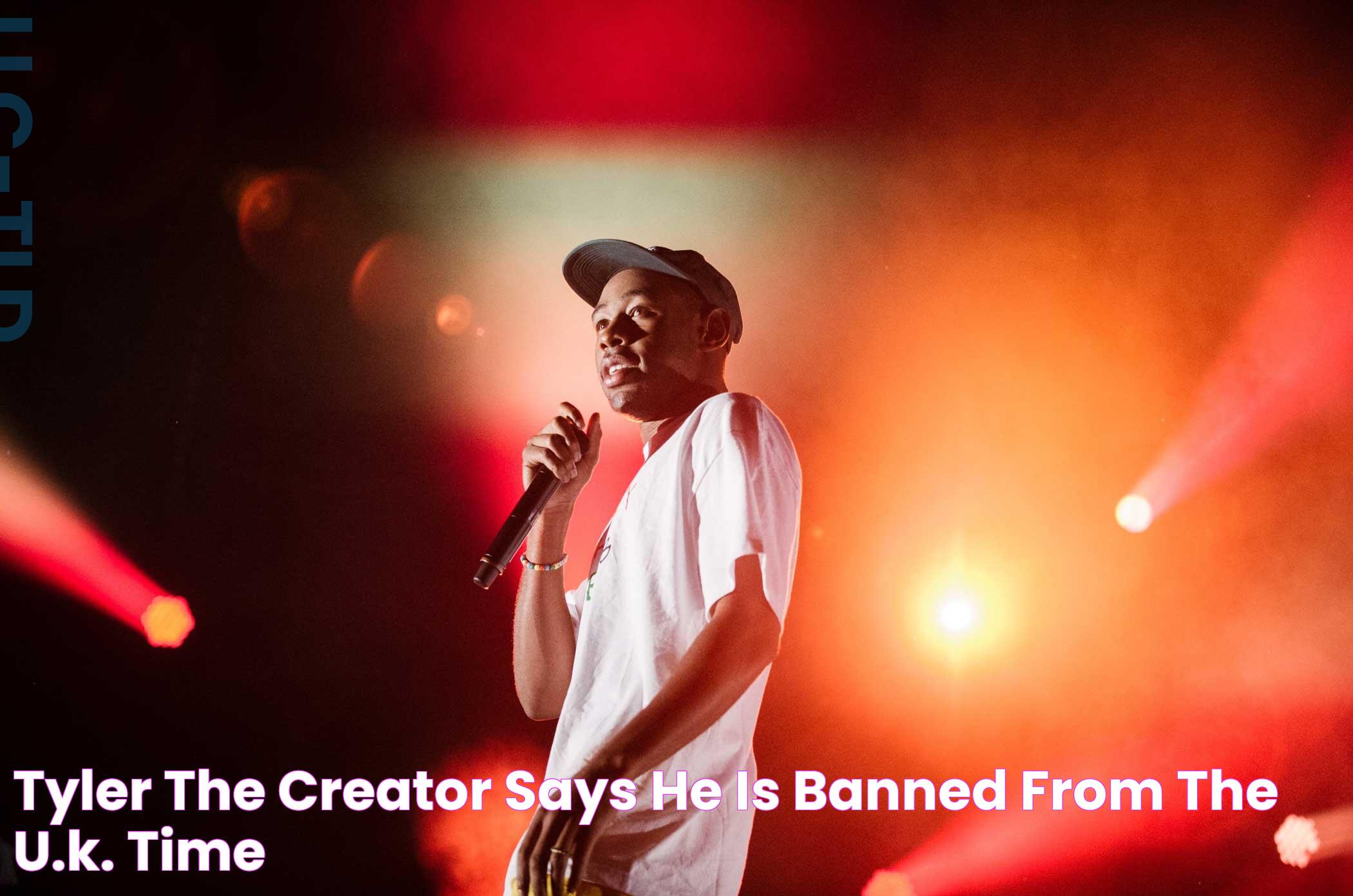Why Was Tyler, The Creator Banned From A Country? The Controversial Story

Tyler, the Creator, the Grammy-winning rapper and artist, has built a reputation for his bold lyrics, innovative artistry, and unapologetic personality. However, his creative freedom hasn't always been well-received, culminating in a high-profile national ban by one country. This controversial decision sparked widespread debate over artistic expression, freedom of speech, and censorship, leaving fans and critics alike questioning the motives behind such measures.
In an era where music and art often challenge societal norms, Tyler, the Creator’s works have not shied away from pushing boundaries. His early albums, laden with provocative lyrics, earned him acclaim and criticism in equal measure. However, one country went so far as to impose a formal ban, citing concerns about the potential influence of his music on their population. This unprecedented move brought international attention to the intersection of artistry and regulation.
So, which country banned Tyler, the Creator, and why? To uncover the full story, we’ll delve into Tyler’s biography, examine the reasons behind the ban, and explore its broader implications. This article sheds light on the contentious event, offering insights into the complex relationship between art, culture, and governance.
Read also:Mastering Jupyter Notebook Your Ultimate Guide To Interactive Computing
Table of Contents
- Who Is Tyler, the Creator? A Glimpse into His Life
- What Sets Tyler, the Creator’s Artistic Style Apart?
- Which Country Banned Tyler, the Creator?
- Why Was Tyler, the Creator Banned?
- Did Tyler Face Any Legal Issues Due to the Ban?
- What Was the Impact of the Ban on Tyler’s Career?
- How Did Fans React to Tyler Being Banned?
- Is the Ban on Tyler Part of a Larger Censorship Debate?
- How Has Tyler’s Music Evolved Since the Ban?
- What Was the Music Industry’s Response to the Ban?
- How Did Tyler, the Creator Respond to the Ban?
- Is the Ban on Tyler, the Creator Still in Effect?
- Have Other Artists Been Banned for Similar Reasons?
- Does Cultural Difference Play a Role in Such Bans?
- What Does This Ban Mean for the Future of Music and Art?
- FAQs on Tyler, the Creator’s Ban
Who Is Tyler, the Creator? A Glimpse into His Life
Tyler Gregory Okonma, known professionally as Tyler, the Creator, is an American rapper, producer, and entrepreneur. Born on March 6, 1991, in Ladera Heights, California, Tyler rose to fame as the co-founder and leader of the alternative hip-hop collective Odd Future. Known for his unique artistry and genre-defying music, Tyler quickly established himself as one of the most innovative voices in modern music.
Personal Details and Bio Data
| Full Name | Tyler Gregory Okonma |
|---|---|
| Date of Birth | March 6, 1991 |
| Birthplace | Ladera Heights, California, USA |
| Profession | Rapper, Producer, Entrepreneur |
| Genres | Hip-Hop, Alternative, R&B |
| Awards | Grammy Awards, BRIT Awards, MTV Music Awards |
From a young age, Tyler demonstrated a passion for music, teaching himself piano by the age of 14. His early works were characterized by their raw, unfiltered lyrics, a hallmark that would define much of his artistic identity. Over the years, Tyler has evolved into a celebrated artist, earning accolades for albums such as Igor and Call Me If You Get Lost.
What Sets Tyler, the Creator’s Artistic Style Apart?
Tyler, the Creator is celebrated for his eclectic style, blending genres and pushing the boundaries of traditional hip-hop. His music often incorporates elements of jazz, R&B, and electronic, creating a sound that’s entirely his own. Beyond music, Tyler is a visual artist, designing album covers, directing music videos, and even launching his own clothing line, Golf Wang.
His lyrics, particularly in his early works, are known for their controversial themes, including dark humor, societal critique, and personal introspection. While these elements earned him a devoted fanbase, they also made him a polarizing figure, with critics accusing him of promoting harmful messages. Despite the backlash, Tyler’s artistry has continued to evolve, showcasing his versatility and willingness to tackle new creative challenges.
Which Country Banned Tyler, the Creator?
The United Kingdom officially banned Tyler, the Creator from entering the country in 2015. The decision, made by the UK Home Office, cited concerns over lyrics from his earlier albums, particularly Bastard (2009) and Goblin (2011). The government argued that Tyler’s lyrics encouraged violence and homophobia, deeming his presence in the country as potentially harmful.
This ban was met with widespread criticism, with many arguing that it infringed on artistic expression and freedom of speech. Supporters of Tyler pointed out that his lyrics were often satirical or reflective of fictional narratives, rather than literal endorsements of harmful behavior. The UK’s decision to ban Tyler raised questions about the balance between protecting societal values and preserving creative freedom.
Read also:Inspiring Stories Of Famous People With Fetal Alcohol Syndrome
Why Was Tyler, the Creator Banned?
What Were the Specific Concerns Raised by the UK Government?
The UK Home Office cited specific lyrics from Tyler’s songs as the basis for the ban. These lyrics, they claimed, promoted violence and expressed hate speech, particularly towards women and the LGBTQ+ community. The government argued that allowing Tyler to perform in the UK could incite similar attitudes among impressionable audiences.
However, Tyler and his supporters countered these claims, arguing that his lyrics were misunderstood. Many of the controversial lines were part of fictional storytelling or exaggerated personas, intended to provoke thought rather than condone harmful behavior. This debate highlighted the challenges of interpreting art within a legal and societal framework.
To be continued...
Article Recommendations

